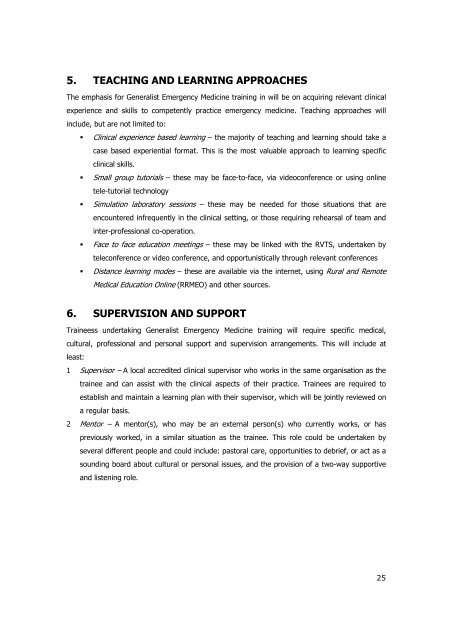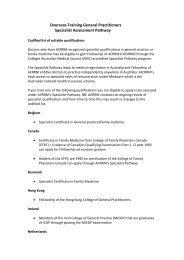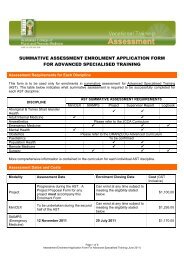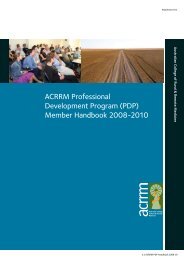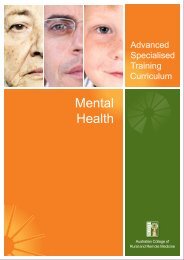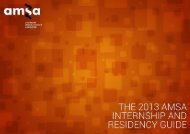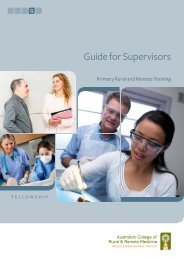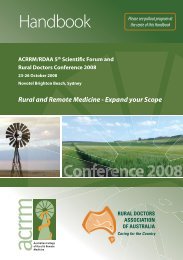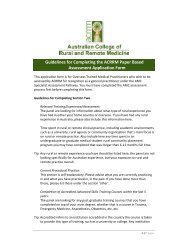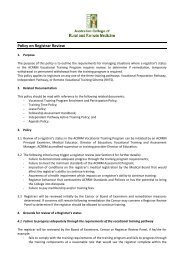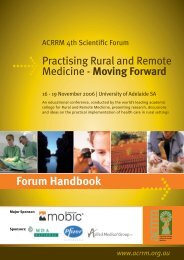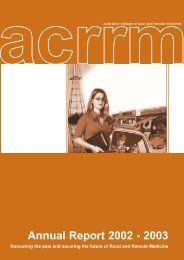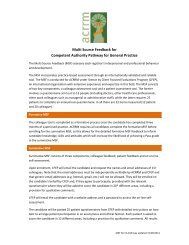ACRRM GEM Curriculum - Final July09 - Australian College of Rural ...
ACRRM GEM Curriculum - Final July09 - Australian College of Rural ...
ACRRM GEM Curriculum - Final July09 - Australian College of Rural ...
Create successful ePaper yourself
Turn your PDF publications into a flip-book with our unique Google optimized e-Paper software.
5. TEACHING AND LEARNING APPROACHES<br />
The emphasis for Generalist Emergency Medicine training in will be on acquiring relevant clinical<br />
experience and skills to competently practice emergency medicine. Teaching approaches will<br />
include, but are not limited to:<br />
Clinical experience based learning – the majority <strong>of</strong> teaching and learning should take a<br />
case based experiential format. This is the most valuable approach to learning specific<br />
clinical skills.<br />
Small group tutorials – these may be face-to-face, via videoconference or using online<br />
tele-tutorial technology<br />
Simulation laboratory sessions – these may be needed for those situations that are<br />
encountered infrequently in the clinical setting, or those requiring rehearsal <strong>of</strong> team and<br />
inter-pr<strong>of</strong>essional co-operation.<br />
Face to face education meetings – these may be linked with the RVTS, undertaken by<br />
teleconference or video conference, and opportunistically through relevant conferences<br />
Distance learning modes – these are available via the internet, using <strong>Rural</strong> and Remote<br />
Medical Education Online (RRMEO) and other sources.<br />
6. SUPERVISION AND SUPPORT<br />
Traineess undertaking Generalist Emergency Medicine training will require specific medical,<br />
cultural, pr<strong>of</strong>essional and personal support and supervision arrangements. This will include at<br />
least:<br />
1 Supervisor – A local accredited clinical supervisor who works in the same organisation as the<br />
trainee and can assist with the clinical aspects <strong>of</strong> their practice. Trainees are required to<br />
establish and maintain a learning plan with their supervisor, which will be jointly reviewed on<br />
a regular basis.<br />
2 Mentor – A mentor(s), who may be an external person(s) who currently works, or has<br />
previously worked, in a similar situation as the trainee. This role could be undertaken by<br />
several different people and could include: pastoral care, opportunities to debrief, or act as a<br />
sounding board about cultural or personal issues, and the provision <strong>of</strong> a two-way supportive<br />
and listening role.<br />
25


